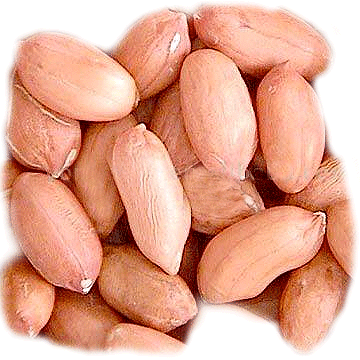
The peanut plant originated in Brazil
and Peru. For as long as people have been making pottery in South America
(since about 750 BC), they have been making jars shaped like peanuts or
decorated with peanuts. Graves of ancient Incas found along the dry
western coast of South America o en contained jars filled with peanuts to
provide food in the afterlife. Tribes in central Brazil ground peanuts
with maize to make an intoxicating drink for celebrations. Even today
people in South America make peanut teas, which they believe stimulate
milk production in nursing mothers, and have a calming effect.
Peanuts were grown as far north as Mexico by
the time the Spanish began their exploration of the New World. The
explorers took peanuts back to Spain, where they are still grown today.
From Spain, traders and explorers took peanuts to Africa and Asia. In
America the plant became common in the western tropical region and was
regarded by many Africans as one of several plants possessing a soul.
Around 1900, equipment was invented for
planting, cultivating, harvesting, shelling and cleaning peanuts. This
made peanut production easier and produced better quality peanuts and
demand for peanut oil, peanuts, peanut butter and confections increased.
In 1903, Dr. George Washington Carver began
his research at Tuskeegee Institute in Alabama. The talented botanist
recognize the value of the peanut as a cash crop and encouraged
Southeastern cotton farmers to use peanuts as a rotation crop in areas that
were threatened by the boll weevil insect. Farmers listened and the face
of Southern farming was changed forever. Carver also helped find a market
for these extra peanuts by developing more than 300 uses including shoe
polish and shaving cream.
Peanut production increased rapidly during
World Wars I and II, when they became an integral part of the Armed
Forcesí rations, and after, during the postwar baby boom.
Today peanuts contribute over four billion
dollars to the U.S. economy each year. Americans eat more than 600 million
pounds of peanuts and about 700 million pounds of peanut butter each year.
* Information supplied by the
Peanut Advisory Board, 1025 Sugar Pike Way, Canton, GA 30115














 .
.